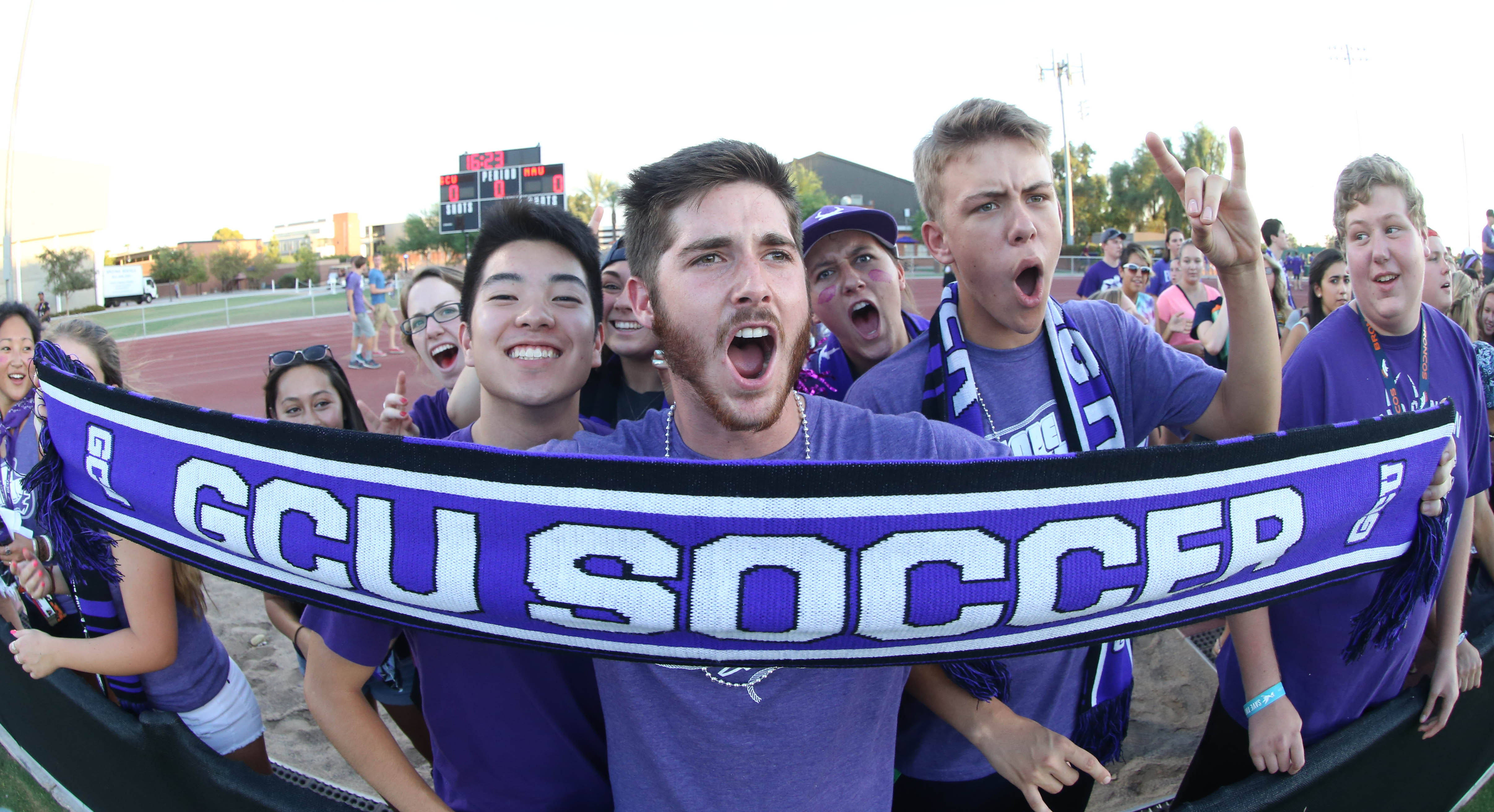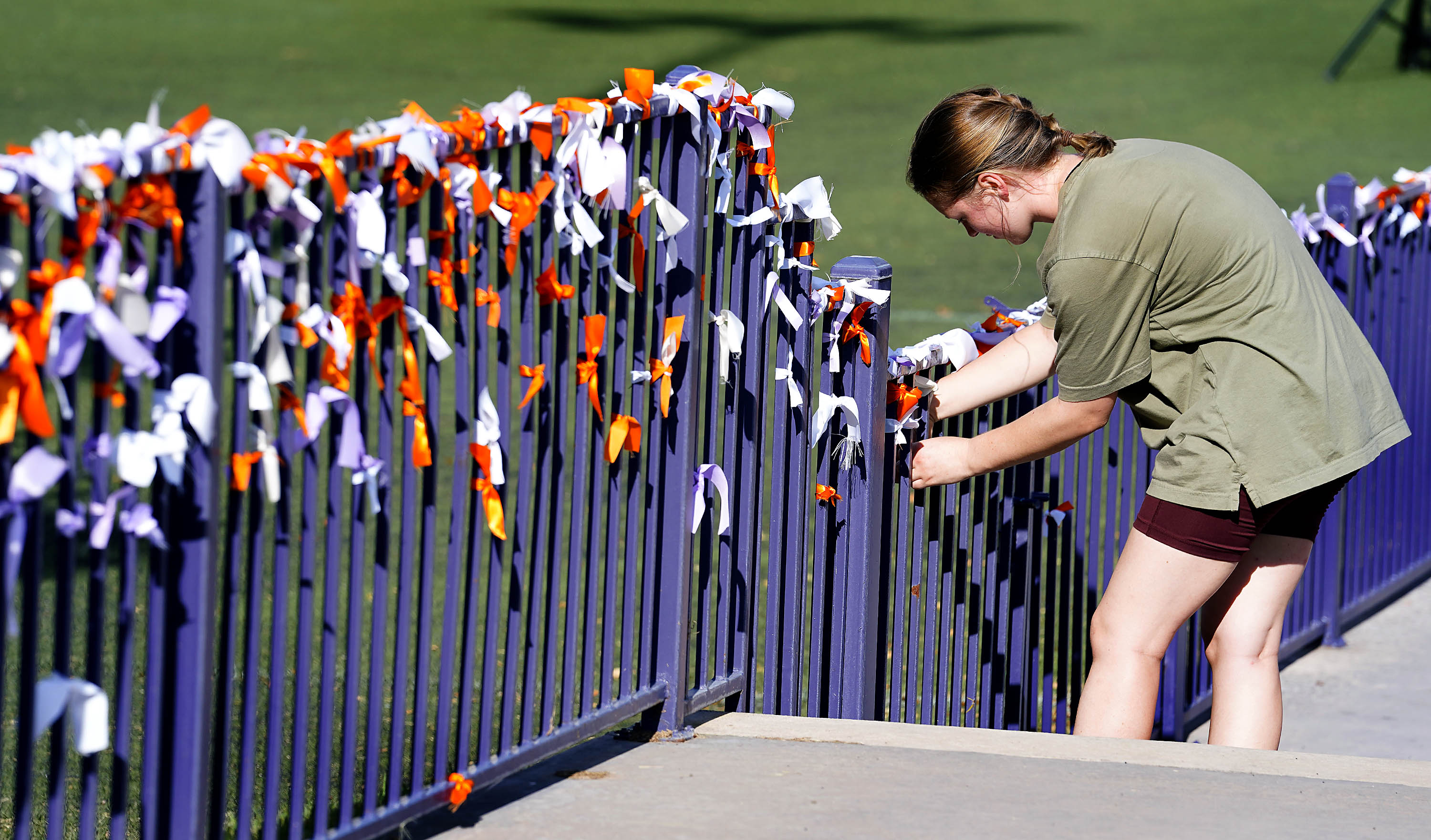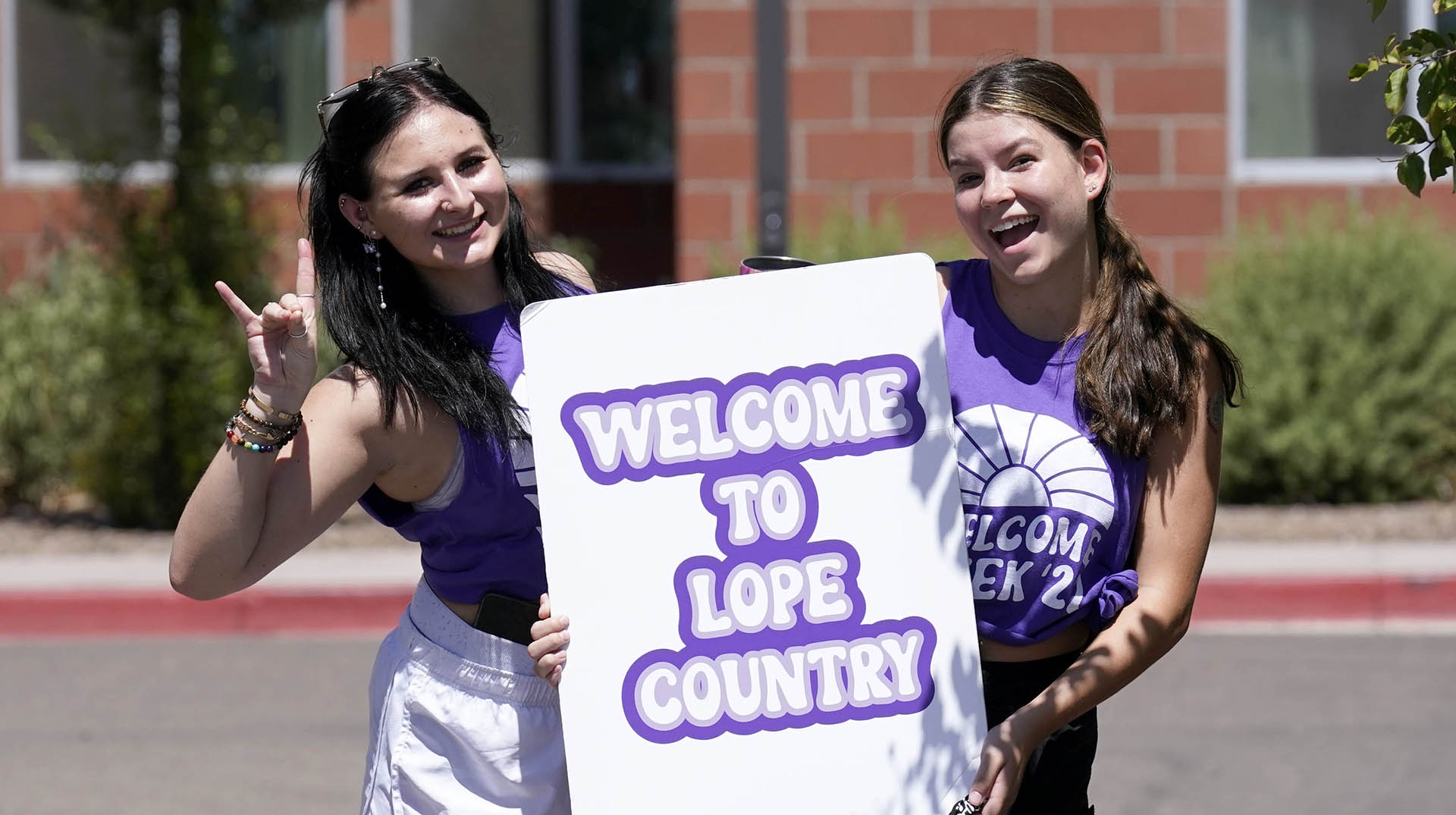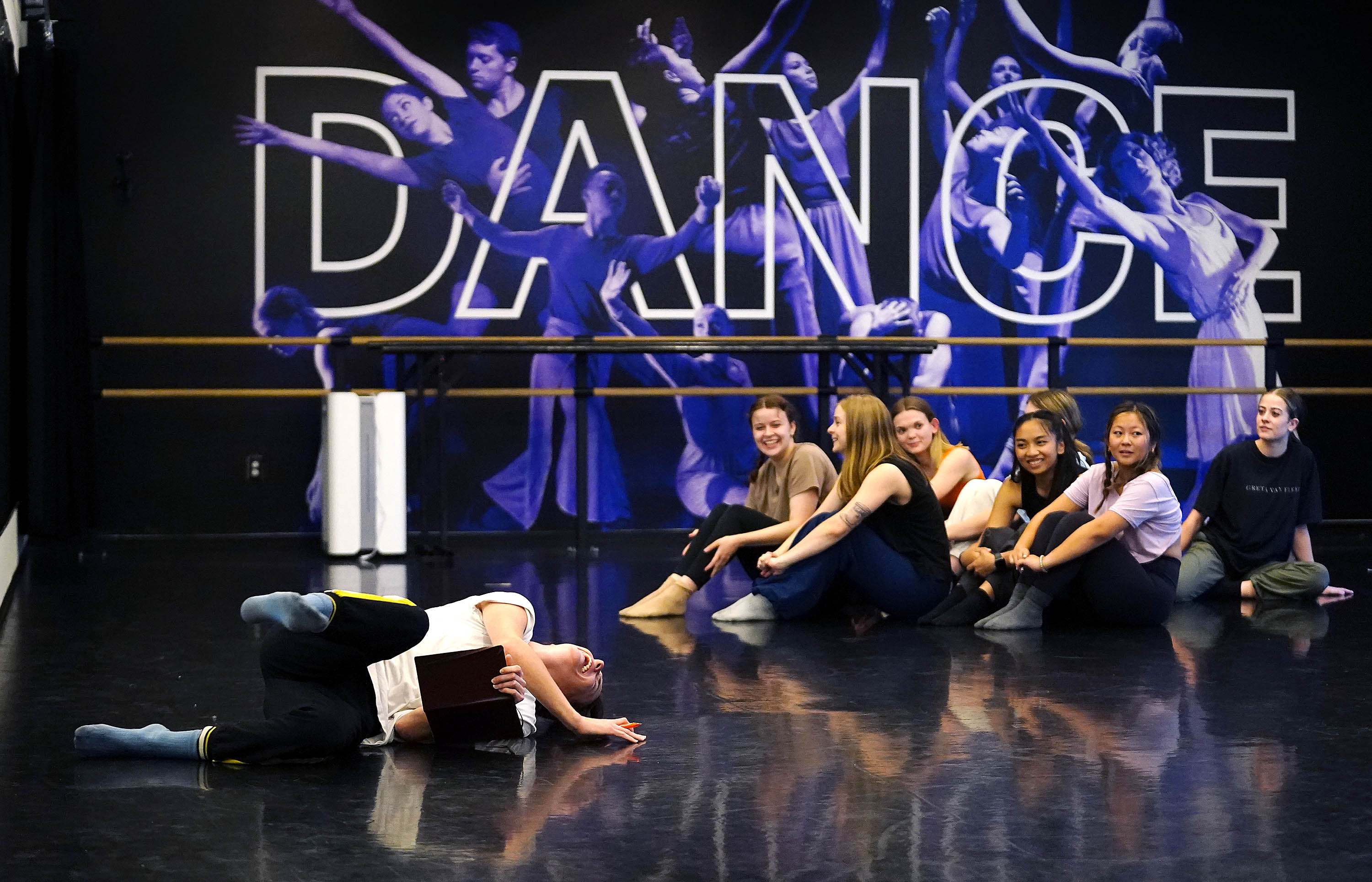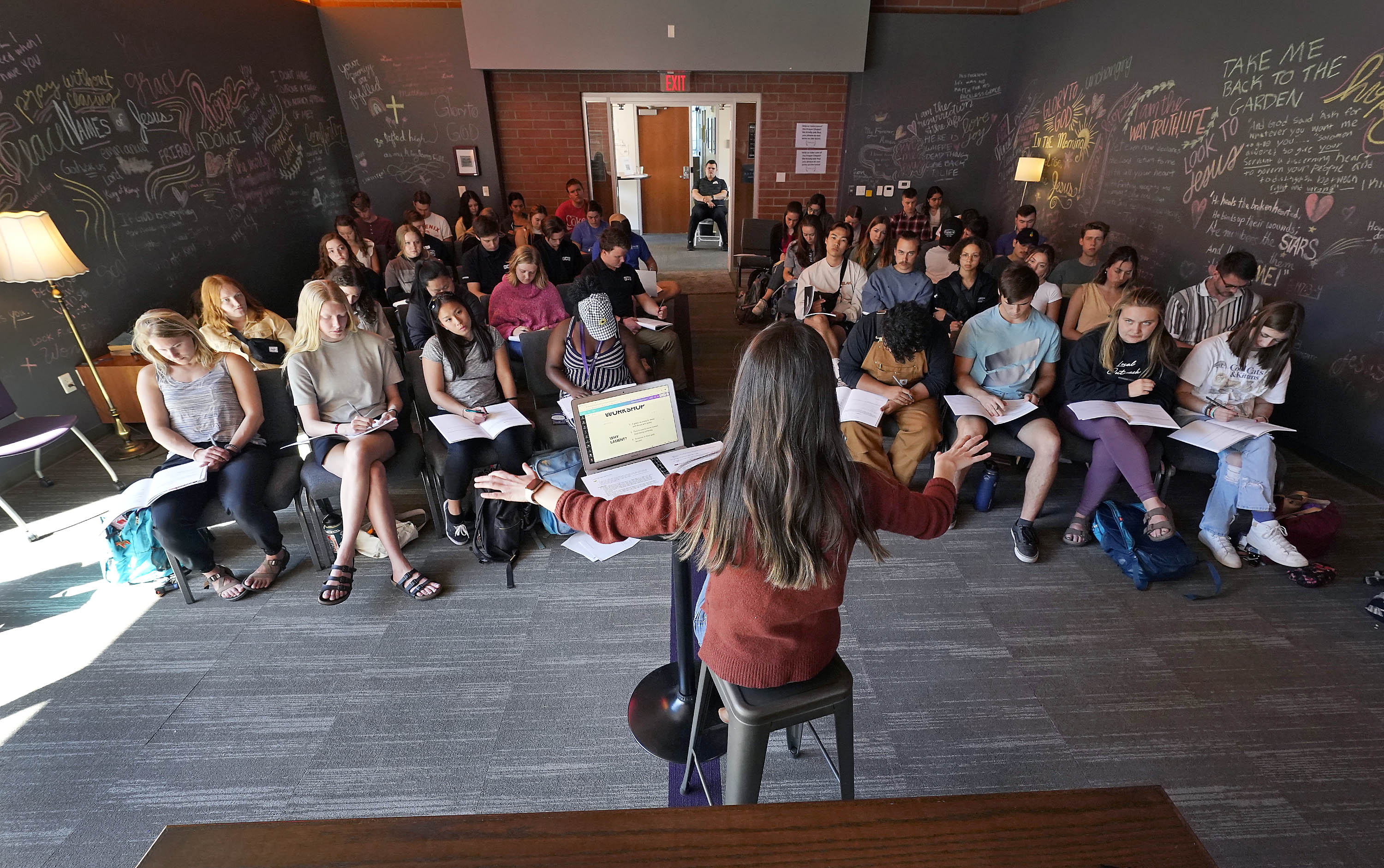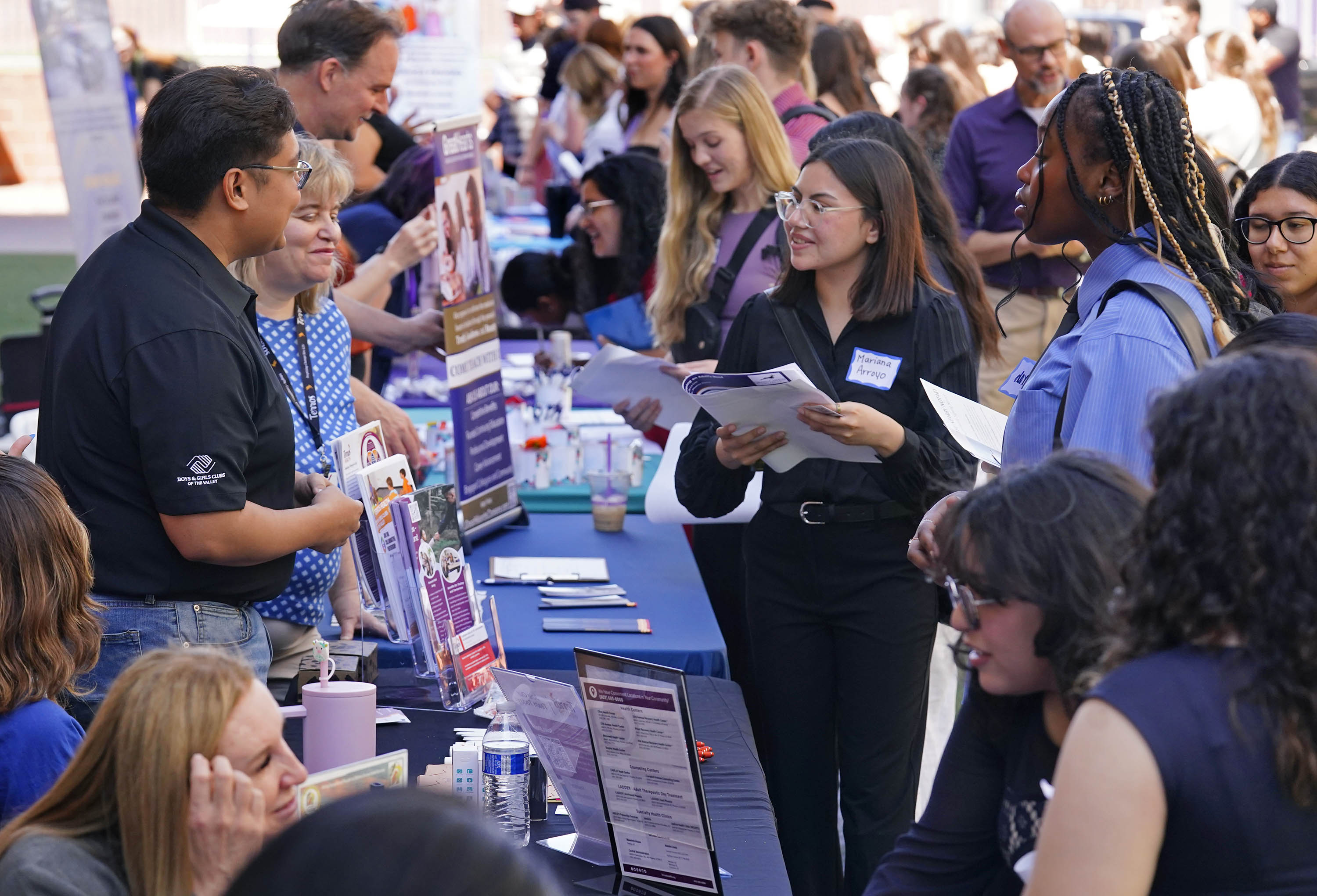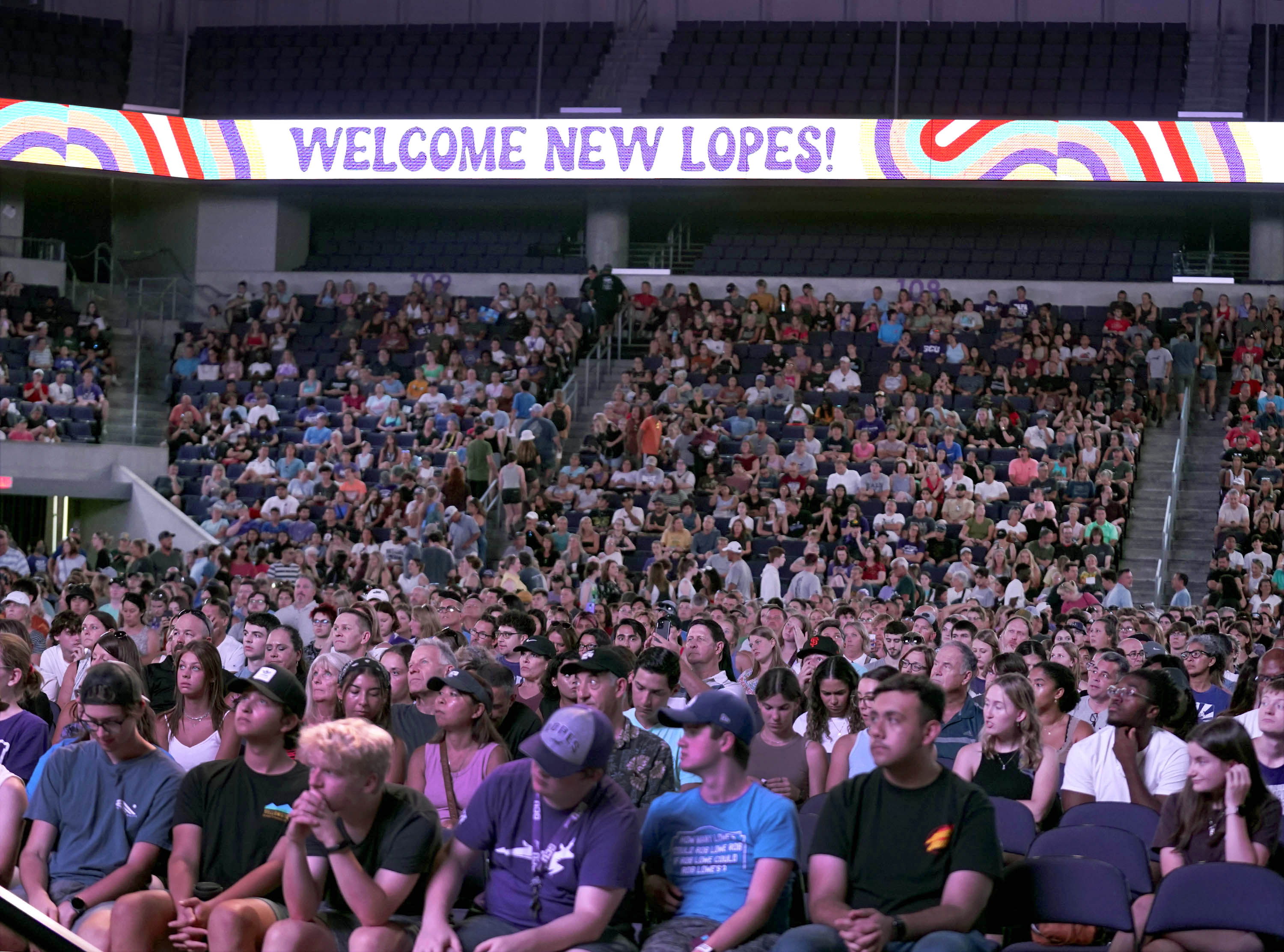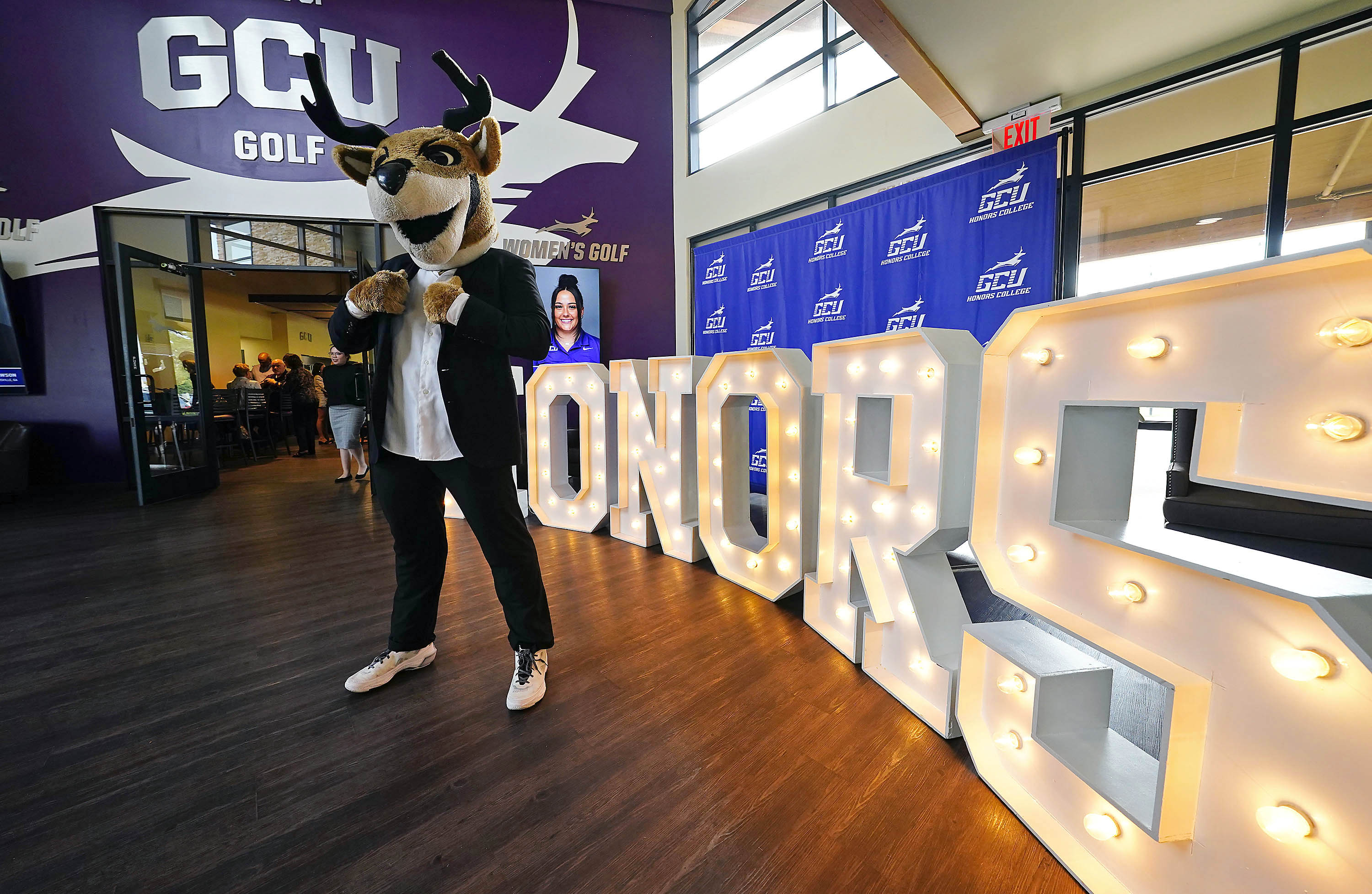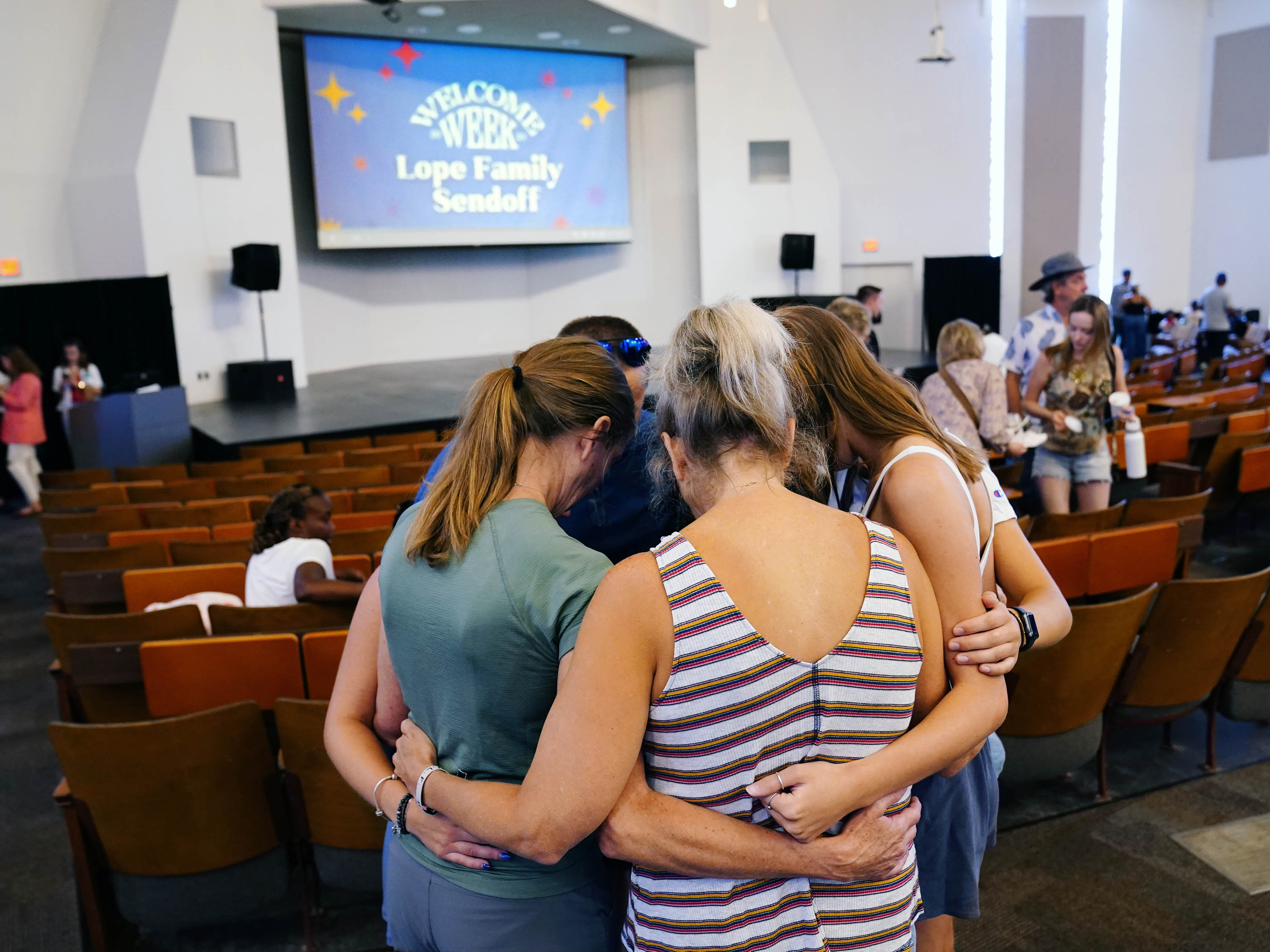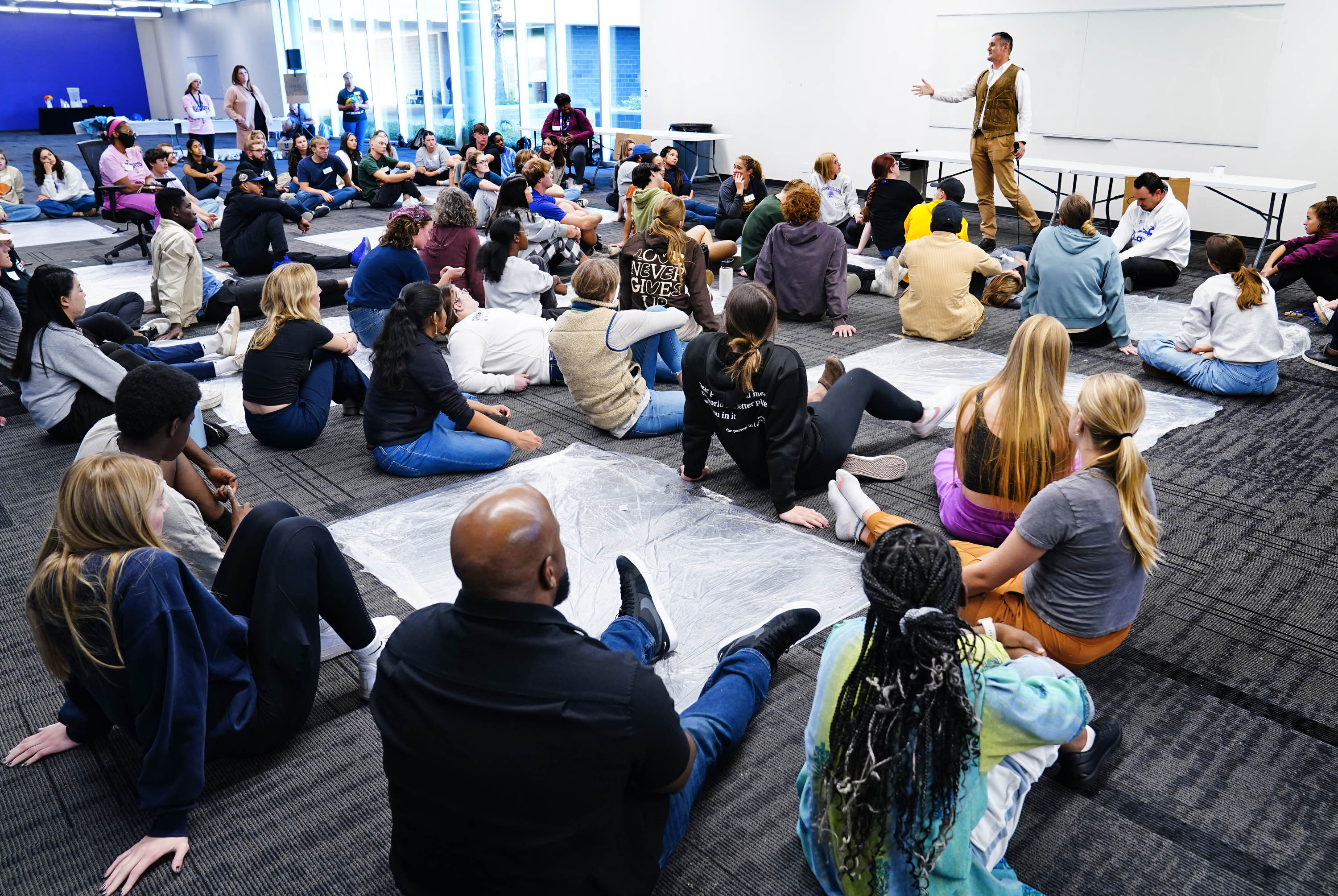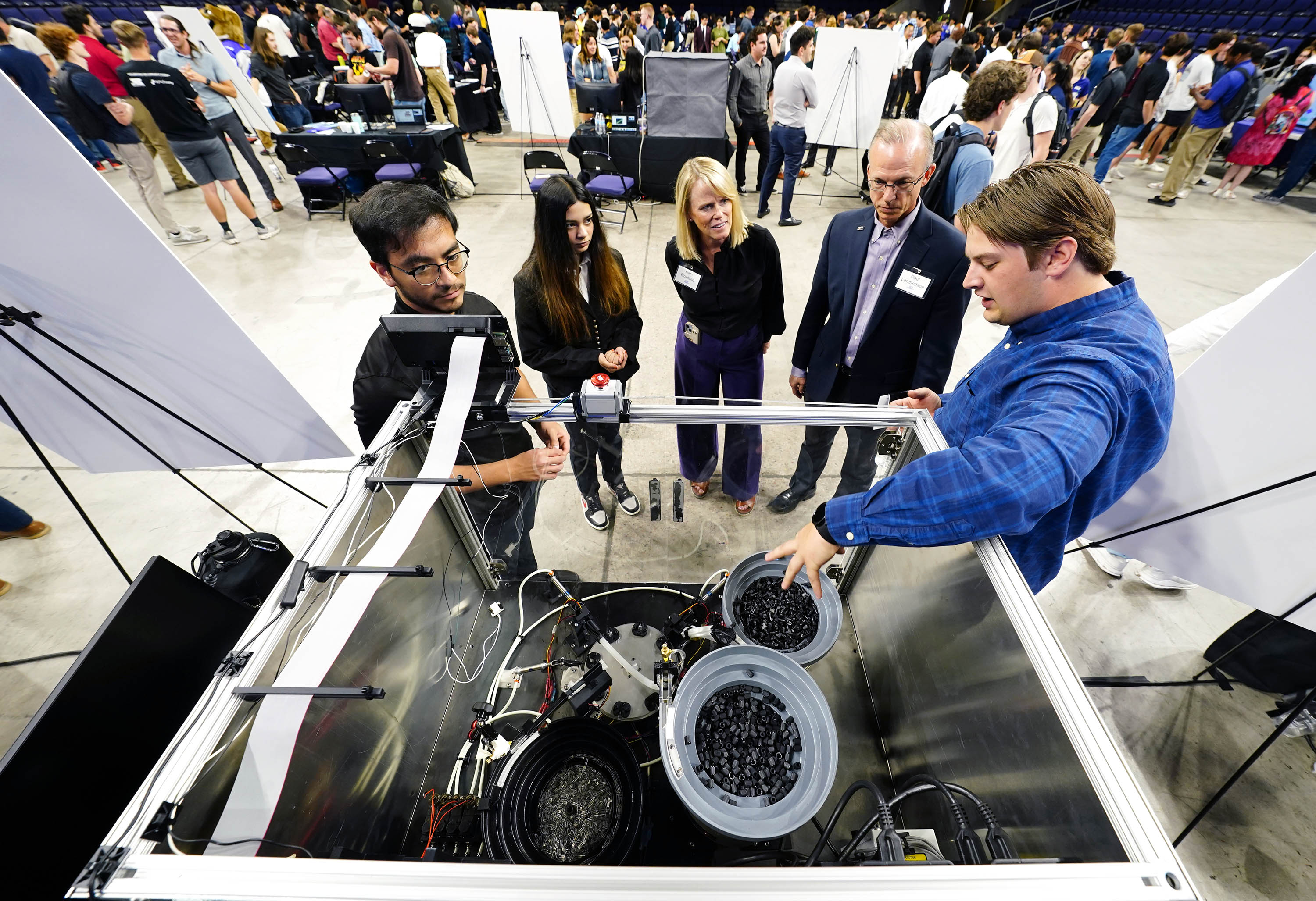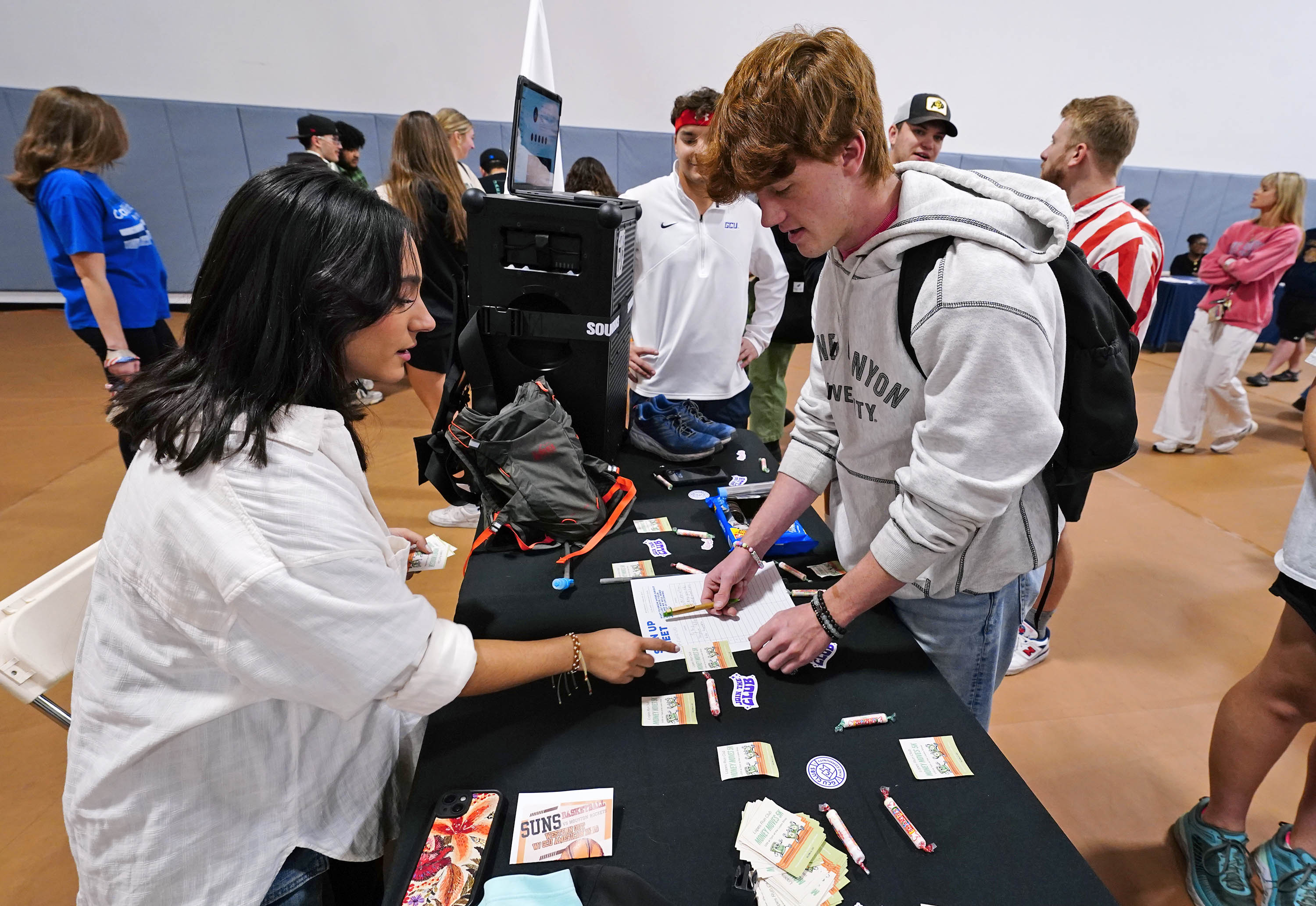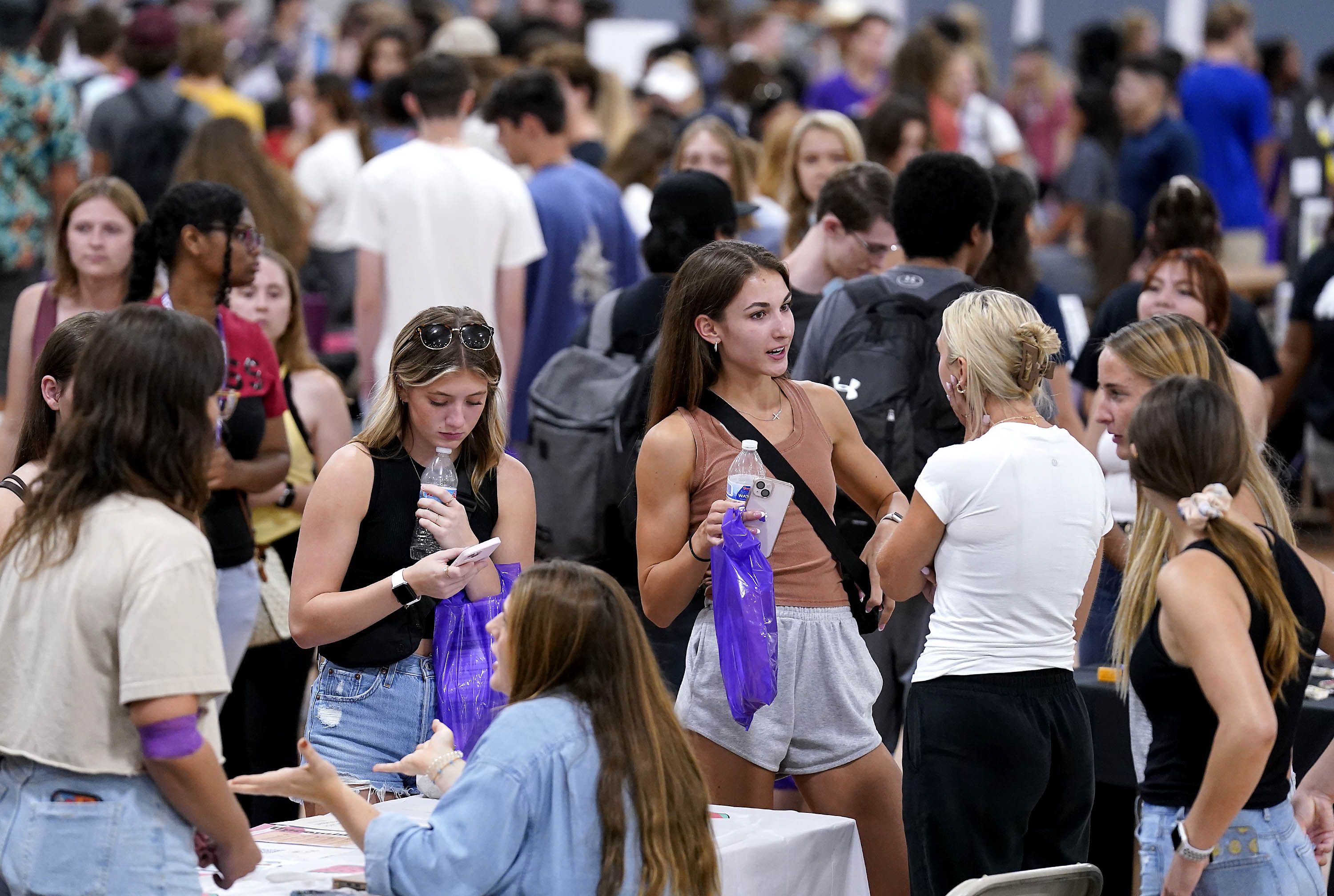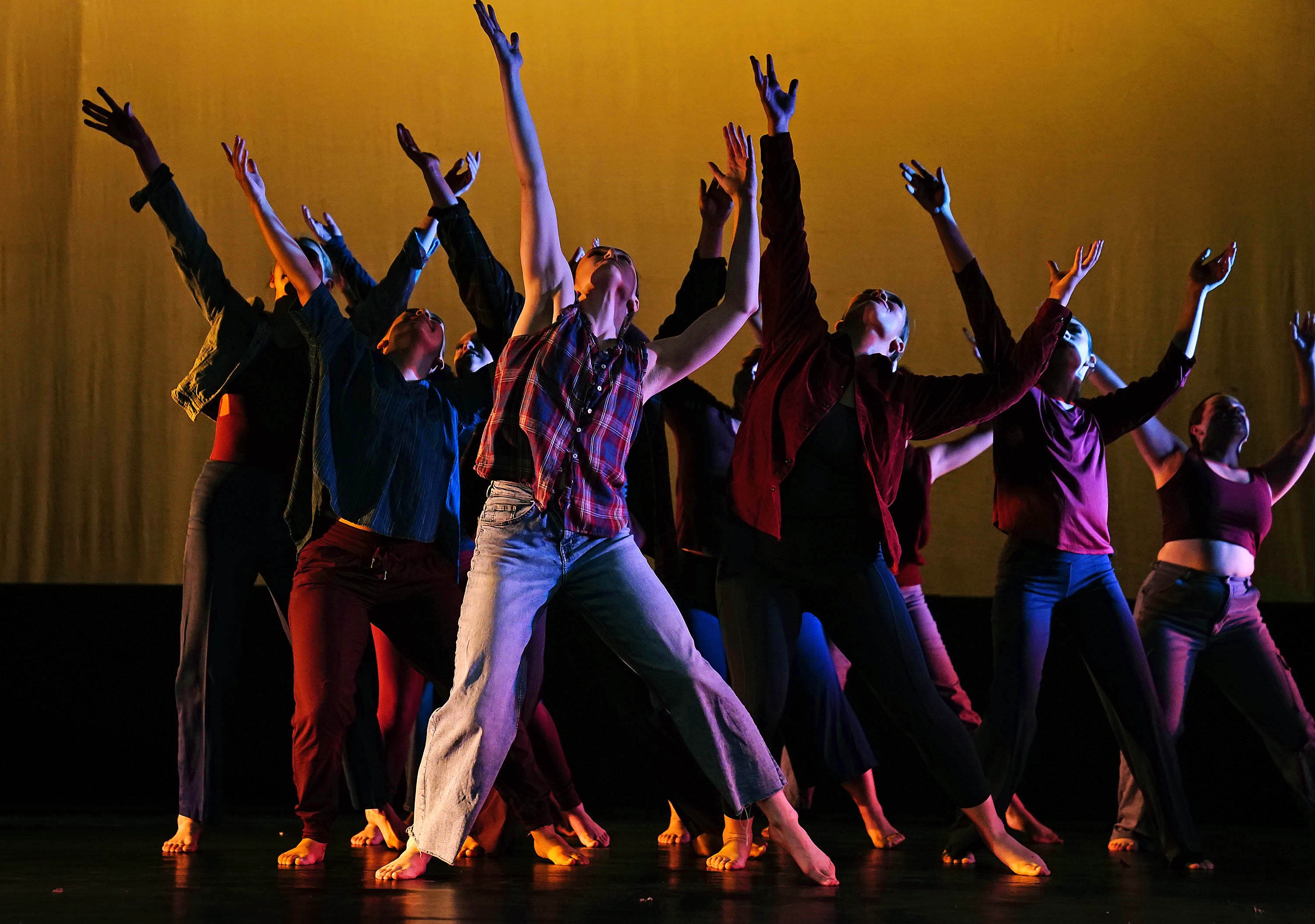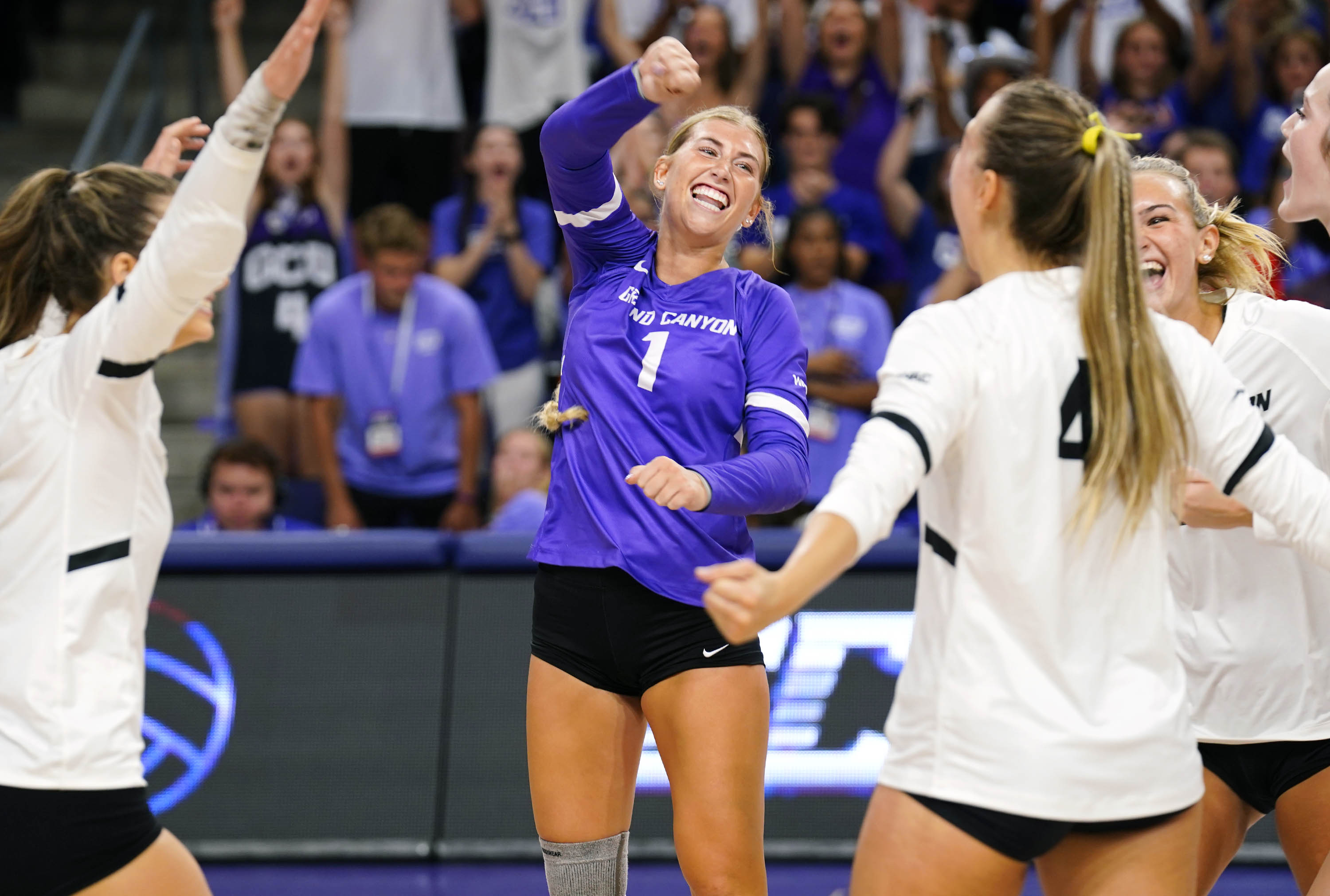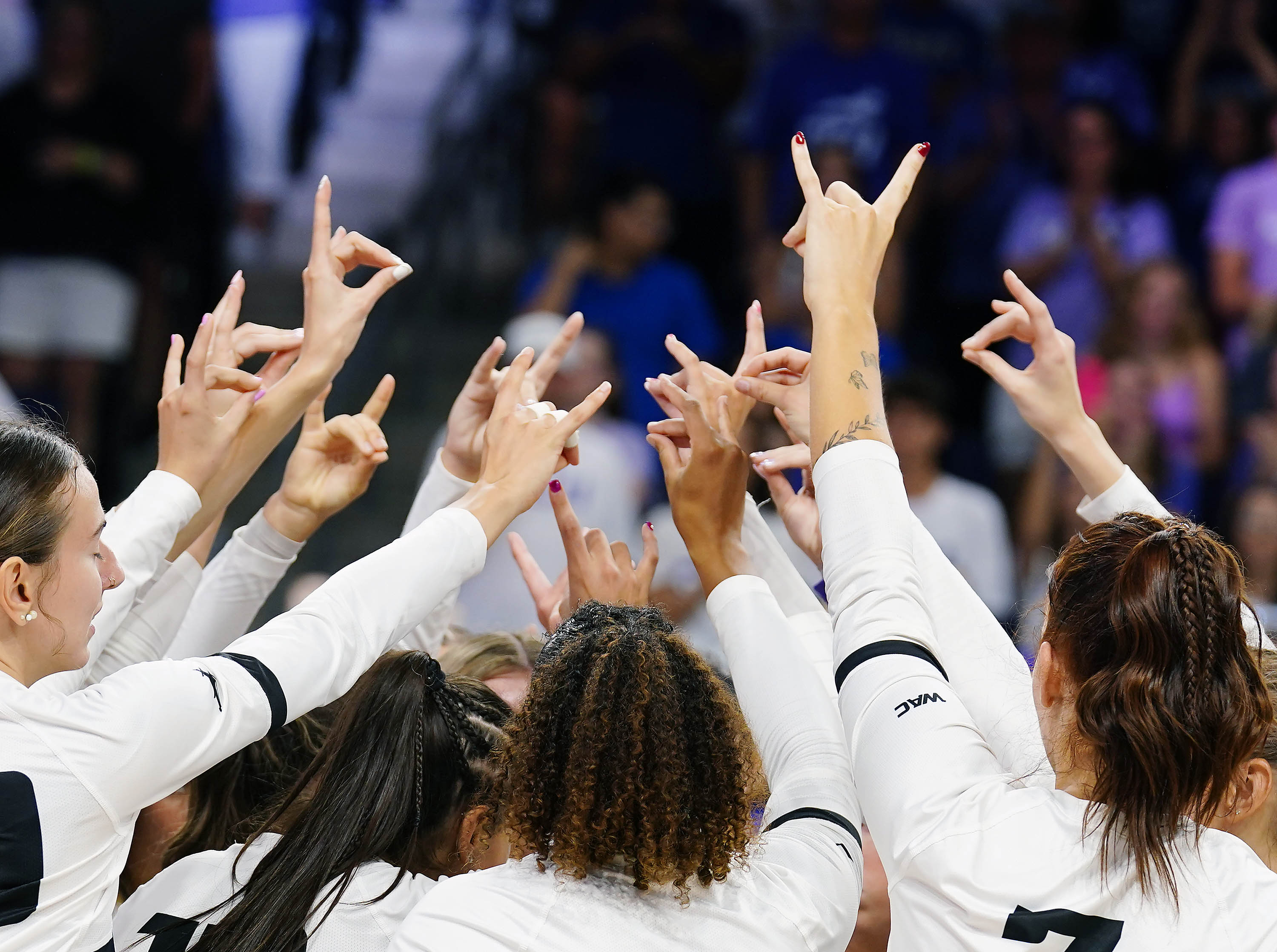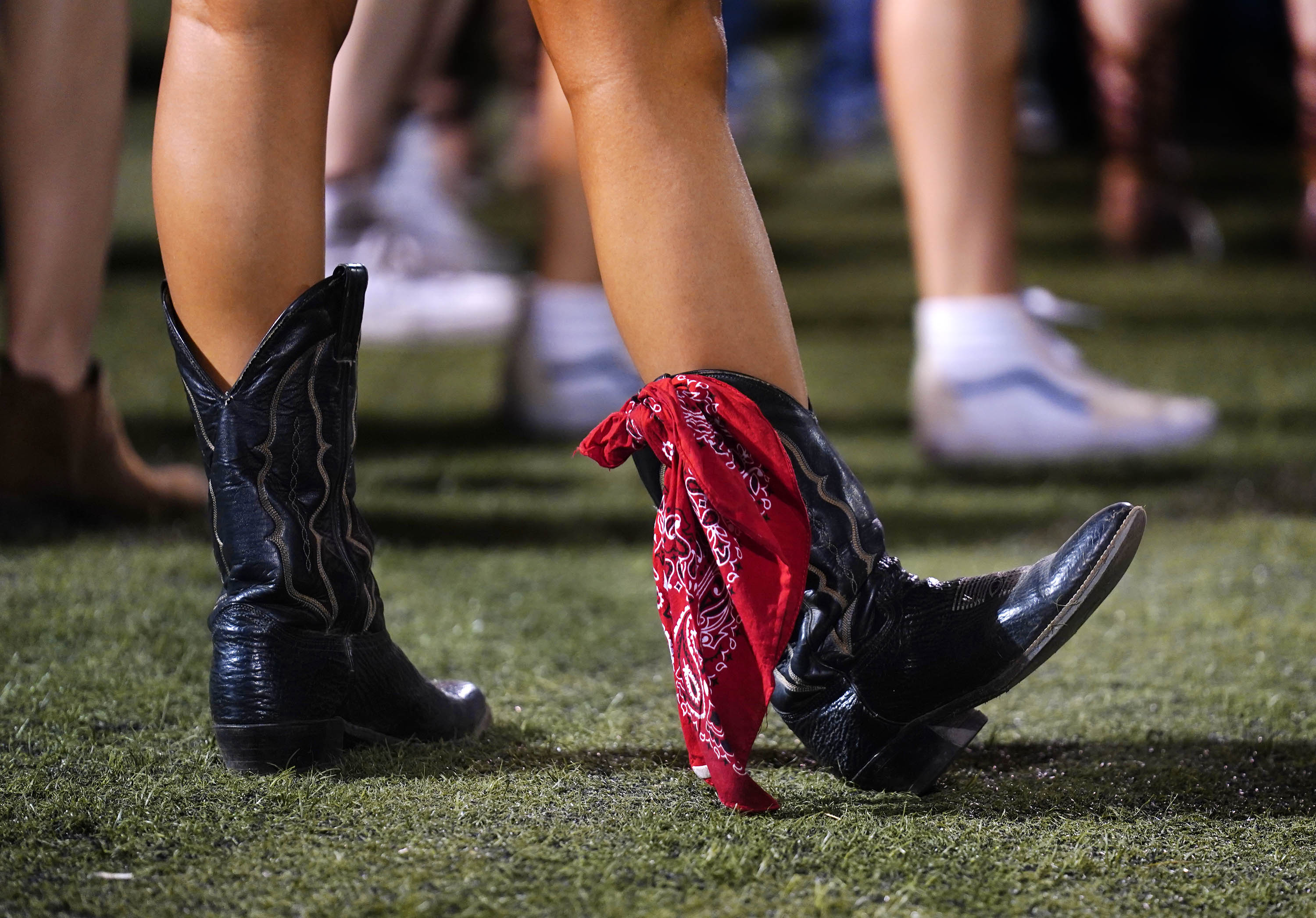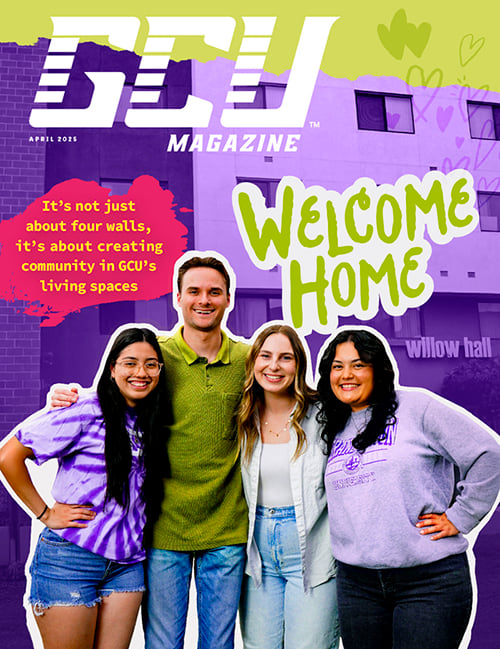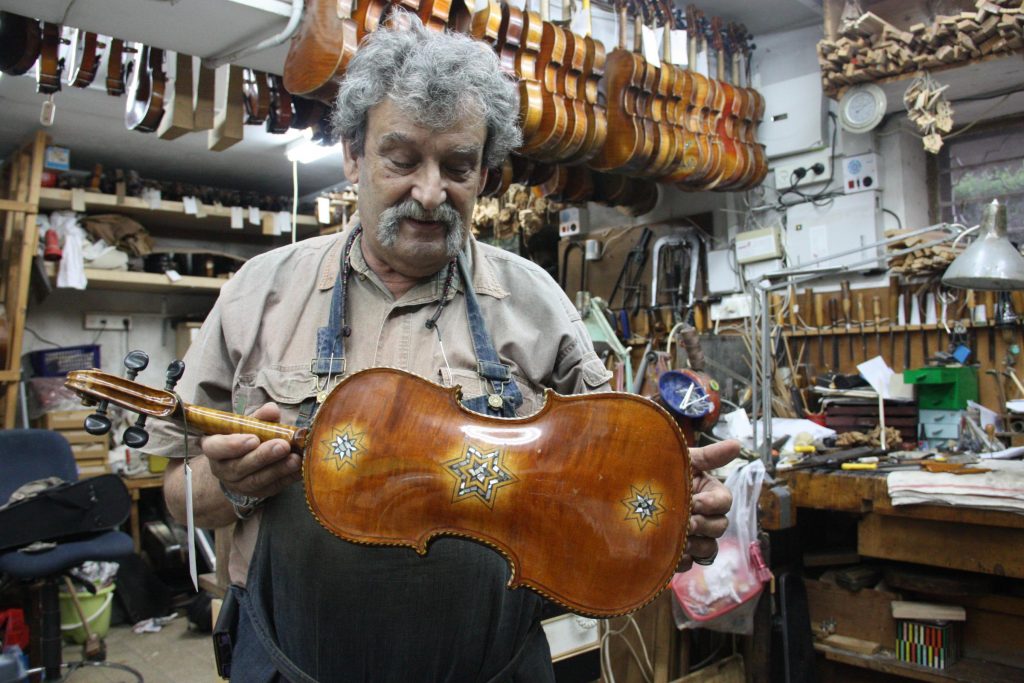
By Lana Sweeten-Shults
GCU News Bureau
Violins speak in glorious, symphonic swaths. They quip in pizzicato and chatter and chirp in streams of harmonious thought.
But some violins wail and cry and scream. And some have been silenced.
It is what master Israeli violin maker and restorer Amnon Weinstein has come to know.
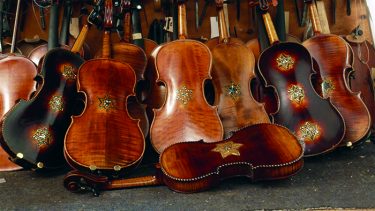
It was in the late 1980s when a man, a survivor of the Auschwitz concentration camp, wandered into his shop. He told Amnon a story of how he played the violin as Nazis marched Jewish prisoners to their deaths; he hadn’t played it since. Four decades after the horrors he had experienced, he wanted to pass the instrument on to his grandson. But that violin had not spoken to him, at least not musically, since he was liberated from the camp.
The top of the violin had been damaged by the elements, exposed to the blustery rain and the snow …
And the storm that was the Holocaust.
But Amnon wasn’t prepared for what he would see when he gingerly took the instrument apart.
He was shocked to discover what was inside -- ashes that had hidden away in the instrument’s dark corners.
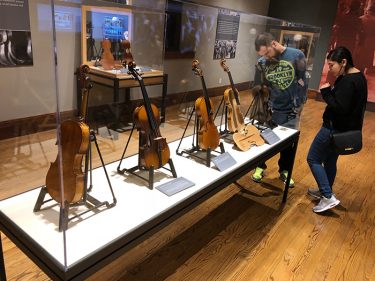
Amnon knew – he just knew – where those ashes must have come from, those drifting, wayward ashes carried by the wind from one of the three ovens in the Auschwitz crematorium. It was where countless Jewish prisoners’ lives ended in the most inhumane way.
It was a terrifying thought, so much so that Amnon could not bring himself to finish the restoration or let his mind go to those dark places.
It would be years later, in the 1990s, that he allowed himself to think more deeply about the ashes in that violin and why they came to be.
That’s when he made a decision to do something to remember the Holocaust and the shared history with the man who wandered into his shop years before. Amnon, too, had lost hundreds of relatives to the Holocaust – hundreds of them. They had stayed behind in Europe when his family didn’t.
His father, violinist, violin maker and restorer Moshe Weinstein, and mother, Golda, made the fateful decision to leave Europe in 1938. Moshe would open his violin shop in Tel Aviv, where Amnon grew up learning his craft.
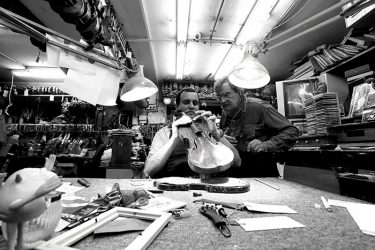
He started to seek out those violins and restore them – it takes, sometimes, up to 18 painstaking hours. He wanted to bring them back to life.
Bring the music back to life.
Bring the stories of the Holocaust’s victims and survivors back to life.
Give them both – instrument and musician – their voice again.
The Violins of Hope will make their way to the Grand Canyon University campus in conjunction with the College of Fine Arts and Production’s Feb. 8-17 presentation of the “Who Will Carry the Word?” drama about the Holocaust. The play tells the story of French resistance worker Charlotte Delbo, who survived three concentration camps.
Amnon's son, third-generation luthier Avshalom Weinstein, will give a talk about the Violins of Hope from 2 to 3:30 p.m. Feb 15 at Ethington Theatre and will bring one or more of the violins, which musicians will play.
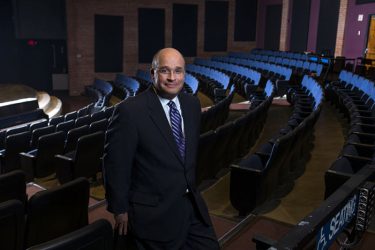
That event will be followed the next day, on Feb. 16, by a post-play talk-back and presentation immediately following the 7:30 p.m. performance of “Who Will Carry the Word?” at Ethington with special guests Amnon and Avshalom Weinstein and a few of the Violins of Hope.
It will be the first educational event the Weinsteins will attend as part of Violins of Hope Phoenix, an almost two-month-long presentation of the Jewish Federation of Greater Phoenix that will include everything from art and history exhibits to plays and musical performances spanning from Sunday to March 26.
Just some of the events dappling the Violins of Hope calendar:
- “Amnon Weinstein, the Man Behind the Music,” a photography exhibit by Daniel Levin running from Sunday to March 26 at the Cutler-Plotkin Jewish Heritage Center
- “Violins of Hope” exhibition Feb. 26-March 24 at the Scottsdale Center for the Performing Arts
- Violins of Hope Tribute Concert 7:30 p.m. March 19, at the Scottsdale Center
- Performances by Grammy Award-winning violinist Gil Shaham on Feb. 23-24 at Arizona Musicfest
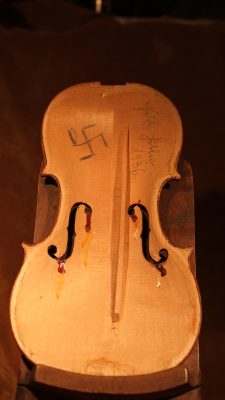
Then there’s GCU Theatre’s presentation of “Who Will Carry the Word?”, the autobiographical play that chronicles Delbo’s time, and those of other French resistance nationalists, at Auschwitz. It is a difficult, painful play to watch as prisoners walk past the corpses of their friends or, in the case of one character, hold a sister through the night as she dies.
“It is a very, very somber play,” said director Claude Pensis, Dean of the College of Fine Arts and Production, who also emphasizes it is a “remarkable work.”
Unlike most plays, it is not character-driven so much as it is driven by Delbo’s words. “It is a play, but it is very much poetry,” he said, and so the title, “Who Will Carry the Word?”, is fitting. Words also seem to be part of the overwhelming worry of the women. They are determined that at least one of them must survive to tell their stories.
How “Who Will Carry the Word?” became connected to Violins of Hope “was just serendipitous,” Pensis said.
“We picked the play on the merits of the play and the fact that it’s a very important part of mankind’s history that we need to remember. It was just through happenstance that we heard that Violins of Hope was coming.”
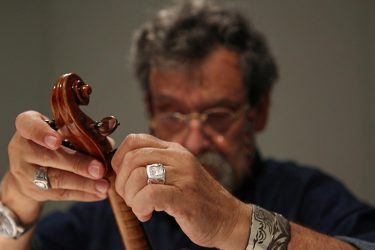
A friend of Pensis, Julee Landau Shahon, is the co-chair of Violins of Hope Phoenix and asked if GCU was interested in being a part of the program. He told her, as fate would have it, they were producing a Holocaust play during the time Violins of Hope would be in Phoenix.
Shahon heard about the program three years ago from philanthropist Jane Weitzman, who had seen it in Cleveland and saw how it connected a community.
“It’s doing the same here," Shahon said. "It’s bringing so many organizations together. It goes way beyond the Jewish community."
Violins of Hope programs span from the Arizona Science Center to Sun City’s Temple Beth Shalom, the Phoenix Art Museum, Temple Chai and Tucson’s Jewish History Museum, to name a few.
“We'll bring this program to 23,000 students, so it’s very rewarding,” she said.
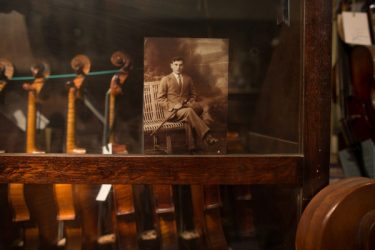
Phoenix is one of the few major cities in the country without a Jewish museum, so projects such as Violins of Hope are so important, she said: “I feel very happy the Violins of Hope program gets education and knowledge out there, especially today when there are so many deniers. ... It’s special. It is a once-in-a-lifetime sort of thing.”
GCU’s theatre students will be among those 23,000 students bearing witness to Holocaust survivors' stories through the Violins of Hope. They already have been delving into that history and preparing themselves to honor Delbo’s words – and those of her fellow survivors.
On the first days of rehearsals, students heard from Dr. Sherman Elliott, Dean of the College of Humanities and Social Sciences, who became interested in the Holocaust when he was just 14 years old and actor Robert Clary, known for playing Louis LeBeau on the 1960s television sitcom “Hogan’s Heroes,” spoke to Elliott's school assembly.
“He was a Holocaust survivor. … He was sitting on the edge of the stage and I saw his number tattooed on his arm,” Elliott said “I thought, those people survived something I couldn’t fathom the horrors of.”
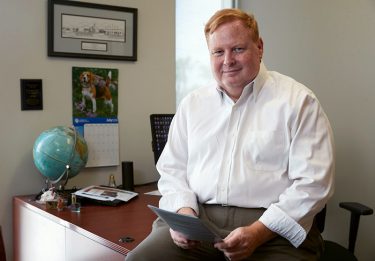
Elliott has since been passionate about Holocaust education and, through the Holocaust Memorial Museum Belfer Program, guest lectures on the subject at schools and national conferences.
He spoke to GCU’s theatre students about Nazi propaganda. People, he said, just couldn’t understand how the Holocaust could possibly have happened. The Nazis were experts at taking advantage of anti-Semitic feelings that had lingered over millennia.
“Hitler and his machine were so good at festering those wounds,” Elliott said.
The students also got to hear from 93-year-old Holocaust survivor Magda Herzberger, who was just 18 when her family was rounded up and deported from her hometown in Cluj, Romania, and sent to extermination camps. She was made to work as a grave-digger and corpse collector during her time at Auschwitz, Bremen and Bergen Belsen.
“The students were absolutely enthralled,” Elliott said.
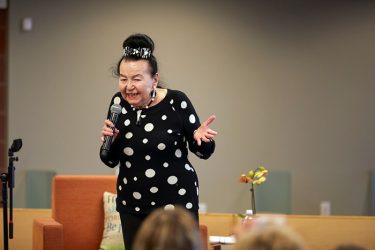
Elliott said he is grateful to the University and Pensis for bringing these kinds of plays and programs to campus. By doing such work, “we are bearing witness to those who lost their lives and the ensuing generation that is still living with that loss.”
Shahon is hoping the community will come out and support “Who Will Carry the Word?” and other Violins of Hope events over the next couple of months.
“What’s interesting about the play is it was written by a survivor of Auschwitz. Music was so important to the camps," Shahon said, as she thought more deeply about how the play and the Violins of Hope are connected – how both tell the story of the Holocaust's victims and survivors so that we never forget what happened. "To me – who will carry the word – that’s what the instruments are doing.”
Silenced no more.
IF YOU GO
What: Violins of Hope
Where: Ethington Theatre, GCU campus
When: 2-3:30 p.m. Feb. 15, as well as an after-play talkback and presentation immediately following the Feb. 16 production of GCU Theatre’s “Who Will Carry the Word” (the play starts at 7:30 p.m. and will end around 9:30 p.m.)
Admission: Free, though tickets are required to see the play. Play admission is $12 with discounts for students, faculty, staff, military personnel and senior citizens. GCU students with ID card admitted free.
Etc.: “Who Will Carry the Word?” will be presented at 7:30 p.m. Fridays and Saturdays and 2 p.m. Sundays from Feb. 8-17.
Information: For Violins of Hope -- www.violinsofhopephoenix.com. For “Who Will Carry the Word” -- 602-639-8880 or ethington@gcu.edu
GCU senior writer Lana Sweeten-Shults can be reached at 602-639-7901 or lana.sweeten-shults@gcu.edu.
****
Related content:
GCU Today: "Holocaust survivor to recount tale of horror"
GCU Blogs: 'Bearing witness: A Holocaust survivor's story"
GCU Today: "'Moon,' 'Starcatcher' ... theatre season heaven-sent"


